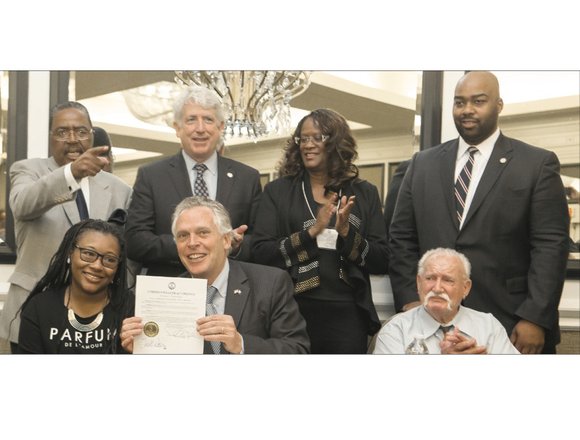Initiative to combat disproportionate school discipline
11/6/2015, 7:20 a.m.

By Jack White
Elijah Coles-Brown, a diminutive but prodigiously precocious fifth-grader, was one of the stars at the Virginia NAACP convention last weekend in Richmond. At the tender age of 11, he already has embarked on a high-profile career as a motivational speaker.
Last year, he was also the focus of unwelcome attention as an especially outrageous example of the harsh disciplinary policies that have made Virginia a prime example of the school-to-prison pipeline.
According to his mother, Elijah was threatened with arrest by a school resource officer after a minor incident of roughhousing with a white student at Three Chopt Elementary School in Henrico County. He has since transferred to another school. His case was prominently featured in a TIME magazine article based on an analysis by the nonprofit Center for Public Integrity, which found that more students in Virginia are referred to the police and court system than in any other state and that African-American, special needs and disabled students are disproportionately affected.
That report, published in April, sparked widespread outrage from organizations such as the NAACP and deeply embarrassed public officials in the Old Dominion, including Gov. Terry McAuliffe.
Last Friday, the governor chose the 80th Annual Convention of the Virginia State Conference NAACP in Richmond as the venue for announcing a new initiative designed to dramatically decrease student suspensions, expulsions and referrals to law enforcement.
The new approach, titled “Classrooms not Courtrooms,” will put special emphasis on reducing police referrals for nonwhite and disabled students.
“The disproportionate use of school discipline on African-Americans and students with disabilities is totally unacceptable here in Virginia,” Gov. McAuliffe declared. “We cannot have our schools viewed as hostile environments where children are branded as criminals.”
He said state Secretary of Education Anne B. Holton and Brian J. Moran, state secretary of public safety and homeland security, will begin working with local schools officials around the state to create new training programs for police officers who are assigned to schools.
The governor wants schools to curb their reliance on subjective offenses such as disorderly conduct, which has resulted in arrests in some cases for such minor infractions as refusing to sit down in class.
Such efforts already are underway in several Richmond area school systems. In Richmond, officials are working on a diversion program whose goal is to keep youngsters charged with minor offenses in class instead of pushing them into the juvenile justice system. Henrico County has moved away from the zero-tolerance policy that got Elijah into hot water.
“I’m glad these changes are taking place. I didn’t do anything wrong, but I was made to feel unsafe by the people at my school. No child should ever have to feel that way,” Elijah said.






